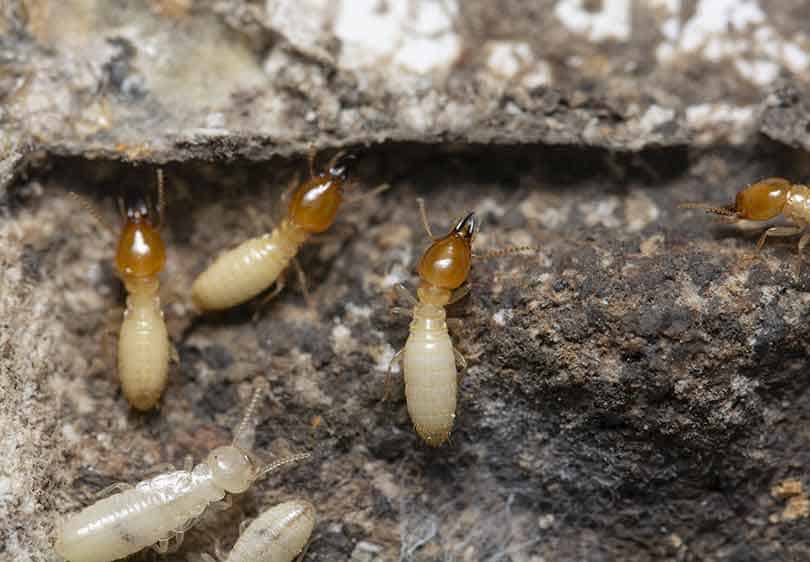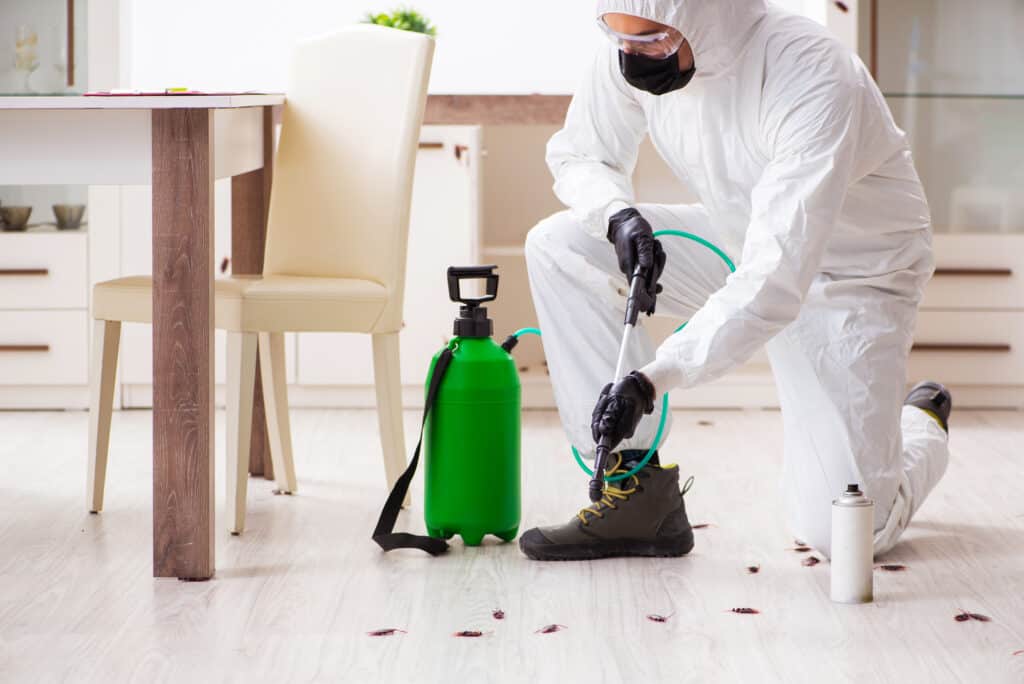Orem Pest Control: Your Companion in Keeping a Pest-Free Environment
Orem Pest Control: Your Companion in Keeping a Pest-Free Environment
Blog Article
Discovering the Different Sorts Of Pest Control Techniques and Their Applications
Pest control is a crucial element of keeping a healthy and balanced and risk-free environment, whether it be in property, industrial, or farming setups. From chemical methods that target details insects to organic approaches that harness all-natural killers, the realm of bug control is huge and diverse.
Chemical Bug Control Techniques
Chemical parasite control techniques are commonly utilized in farming and pest administration to efficiently remove or regulate pest problems. These methods involve making use of chemical materials, such as herbicides, pesticides, and pesticides, to get rid of or lower bug populations that pose a danger to plants, animals, or human health. Pesticides, as an example, target certain pests like weeds, pests, or rats, disrupting their life process or causing straight injury upon contact. Herbicides are especially developed to regulate undesirable plants that competes with crops for sources and nutrients. Pesticides, on the various other hand, are used to deal with insect parasites that can harm crops and transfer illness.
While chemical bug control techniques can be highly efficient in taking care of parasite populations, they also increase problems regarding prospective environmental and health and wellness dangers. Inappropriate usage or overuse of chemical pesticides can bring about air pollution of air, soil, and water, damaging non-target organisms and causing lasting eco-friendly damage. Additionally, duplicated direct exposure to chemical deposits may posture health dangers to farmworkers, consumers, and wildlife. It is crucial to comply with safety and security standards, make use of integrated pest management strategies, and consider alternative approaches to minimize the negative effects of chemical bug control methods.
Biological Pest Control Techniques
 Biological bug control approaches utilize living organisms to minimize and manage parasite populations in a ecologically pleasant and lasting fashion. One common method is the launch of ladybugs to combat aphids in yards, as ladybugs are all-natural killers of these destructive pests.
Biological bug control approaches utilize living organisms to minimize and manage parasite populations in a ecologically pleasant and lasting fashion. One common method is the launch of ladybugs to combat aphids in yards, as ladybugs are all-natural killers of these destructive pests.
Biological parasite control methods offer a number of benefits over chemical methods. They are typically much safer for the atmosphere, as they do not leave hazardous deposits or add to contamination. Additionally, these approaches are usually a lot more targeted, affecting just the insect varieties without hurting various other microorganisms or helpful insects. Furthermore, biological control can be a long-term remedy, as the introduced microorganisms can develop lasting populations and give recurring bug management. Overall, biological bug control methods offer a effective and natural option to conventional chemical therapies, promoting a balanced community and much healthier environments.
Physical Insect Control Approaches
Using physical methods to control bugs includes using mechanical or non-chemical ways to manage and alleviate insect problems effectively. These techniques depend on physical obstacles, catches, and various other techniques to discourage and remove pests without the usage of unsafe chemicals. One typical physical insect control technique is the setup of nets, fencings, or displays to block parasites from going into particular areas. This method is particularly reliable in keeping out bugs and small pets from gardens or structures.
One more physical strategy is the use of traps, such as snap catches for rodents or scent traps for pests. These traps goal to capture insects without presenting any danger to people or the setting. Furthermore, physical control methods can consist of methods like handpicking bugs off plants, using vacuum cleaner gadgets to get rid of insects, or employing heat therapies to remove bed bugs and other insects in plagued locations.
Integrated Bug Management Approaches
Applying an all natural strategy to pest management, Integrated Parasite Management (IPM) strategies aim to integrate various efficient methods to manage and protect against bug infestations while reducing ecological influence and making sure lasting pest control techniques. IPM entails the integration of several control methods such as organic control, cultural techniques, mechanical control, and the cautious usage of pesticides.

Furthermore, IPM emphasizes the value of his comment is here tracking and analyzing pest populaces to determine one of the most ideal control methods. By executing IPM approaches, insect control efforts come to be much more targeted and reliable, lowering the risks connected with too much chemical usage and promoting long-term pest management solutions.
Natural and Organic Pest Control Options

One popular organic bug control approach is neem oil, originated from the seeds of the neem tree, which serves as a repellent and interrupts the growth and growth of bugs. Diatomaceous planet, an all-natural silica-based powder, is another reliable natural pest control option that functions by dehydrating pests upon get in touch with. By integrating organic and all-natural parasite control choices right into insect administration strategies, people can efficiently regulate insects while minimizing harm to the setting and advertising sustainable techniques.
Conclusion
To visit site conclude, numerous bug control methods such as chemical, organic, physical, integrated bug monitoring, and natural choices are available for properly managing parasite infestations. Each method has its own benefits and applications relying on the type of parasite and the atmosphere. By understanding the different kinds of bug control strategies and their applications, people can make browse around this site enlightened choices on one of the most suitable approach to control insects and protect their residential or commercial property.
Chemical bug control strategies are commonly made use of in farming and bug administration to successfully eliminate or manage pest problems - Orem Pest Control. All-natural bug control techniques involve using organic control representatives, such as bloodsuckers or predators, to manage parasite populaces. By incorporating natural and natural parasite control alternatives into pest monitoring approaches, individuals can properly regulate parasites while decreasing damage to the setting and advertising sustainable techniques
In conclusion, various insect control strategies such as chemical, organic, physical, incorporated pest administration, and all-natural options are available for successfully managing parasite infestations. By recognizing the various kinds of bug control techniques and their applications, people can make informed choices on the most proper strategy to regulate pests and shield their home.
Report this page